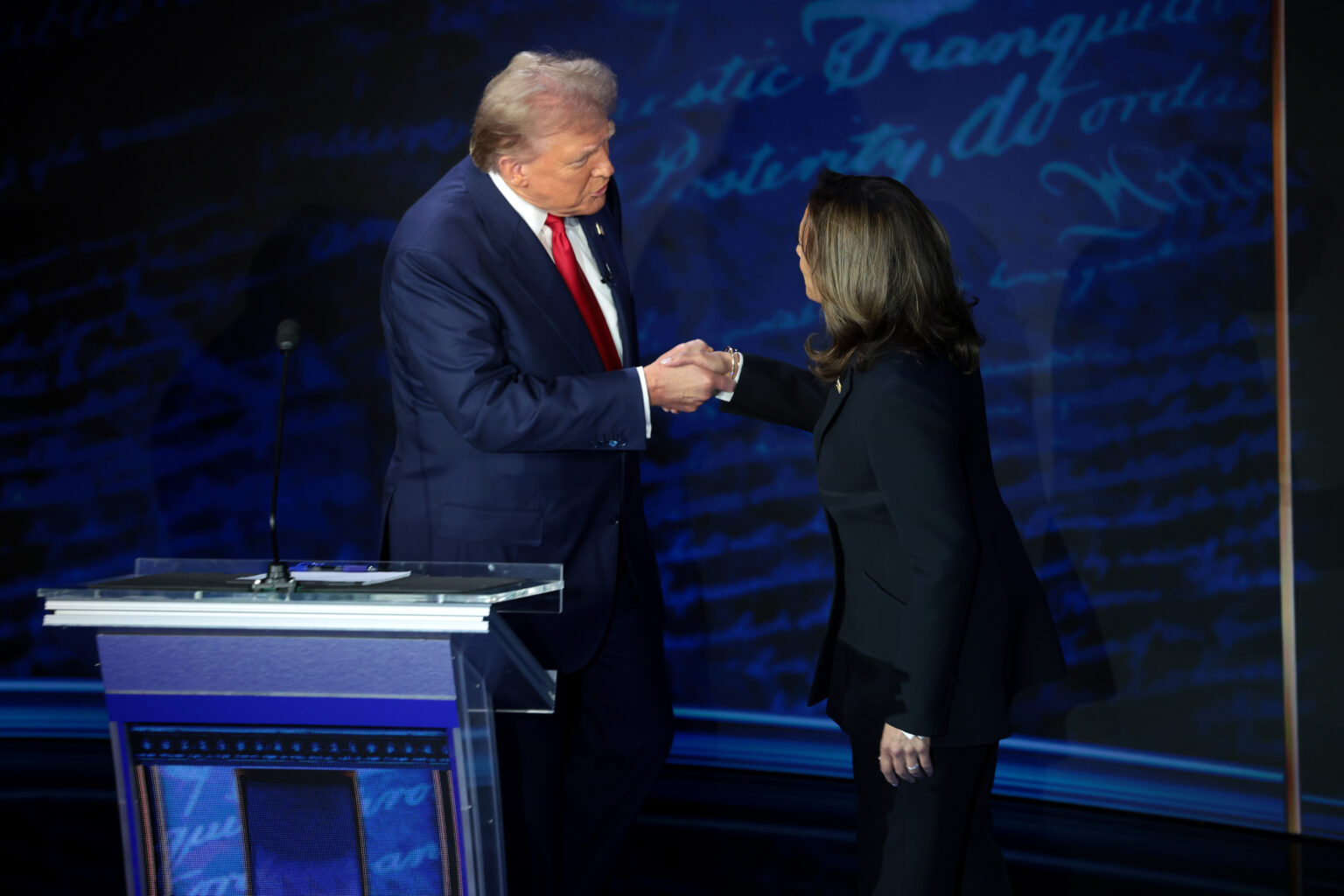During Tuesday’s debate, Vice President Kamala Harris made an interesting claim: Trump would effectively hike the price of everyday goods by a whopping 20%, which she referred to as “Trump sales tax.”
“My opponent,” Harris said, “has a plan that I call the “Trump sales tax,” which would be a 20% tax on everyday goods that you rely on to get through the month.” Harris then cited “economists” to claim that this “Trump sales tax” would result in “middle-class families” paying “about $4,000 more a year because of his policies.”
While the specific figure is disputed, economists generally agree that Trump’s policies would result in the typical American family spending thousands of dollars more per year on necessities than they already are.
Trump strongly denied the claim. “I have no sales tax,” he insisted. Instead, he says, “We’re doing tariffs on other countries.… When I had it, I had tariffs and yet I had no inflation.” Trump then spent the rest of his two-minute rebuttal on inflation and immigrants, referencing the now-viral and disproved conspiracy theories about pet eating and building takeovers.
In March, Harvard Economics Professor Kenneth Rogoff said that Trump’s tariffs would “push up inflation.” He also noted that Trump’s introduction of tariffs in 2019 caused “uncertainty and stress.”
However, it’s also worth noting that the Biden-Harris Administration elected to keep the tariffs Trump put in place – and levied some of its own.
Furthermore, a recent Wall Street Journal survey of economists concluded that Trump’s policies would make inflation — which has come down over the last year — much worse.
Related: Trump Presidency Will Reignite Inflation, 16 Nobel-Winning Economists Say
Nevertheless, Trump does have a technical point: He isn’t proposing a sales tax; he’s proposing a tariff. However, that really is a technicality. Economists do agree that Trump’s proposed tariffs would raise prices for Americans, as Harris claimed.
Would those tariffs equate to a twenty percent sales tax? That’s harder to answer.
Trump has been vague about what exactly his tariffs would look like. Initially, his plan seemed to involve a ten-percent tariff on all imports. Those from China, however, would be subjected to a much steeper sixty percent tariff. Trump also floated the idea of using these tariffs to replace federal income tax. While people would bring home more of their paychecks, the prices of goods would be higher.
According to research published by the Peterson Institute of International Economics, or PIIE, this idea is “one of the most harmful” Trump has proposed.
“It is literally impossible for tariffs to fully replace income taxes,” the authors say. Meanwhile, Trump’s tariffs would “cost jobs, ignite inflation, increase federal deficits, … cause a recession, … shift the tax burden away from the well off, … [and] antagonize US allies and partners, provoking worldwide trade wars, damaging global economic warfare, and undermining national security.”
Not great. But also not exactly what Harris claimed, either. However, in August, Trump changed his tune. “We’re going to have 10 to 20 percent tariffs on foreign countries,” he said during a speech in Asheville, North Carolina.
But would ordinary Americans be as impacted by this rate as the Vice President claimed?
Perhaps not. According to the PIIE, Trump’s 20-percent tariffs would cost the typical American household over $2,600 annually. Of course, that’s still a hefty burden. It would also be disproportionally felt by the poorest Americans.
Nevertheless, the PIIE is far from the only research group to have warned about the disastrous effects of Trump’s tariff proposals. According to the Center for American Progress, Trump’s 20 percent tariff — and 60 percent tariff on China — would cost a middle-income family up to $3,900 per year. The CAP equated this to a tax increase, which is possibly where Harris got that language.
In short, you could perhaps argue that Harris wasn’t being entirely truthful. However, beyond the semantics and technicalities, the net effect of Harris’s claim is correct.
Economists do generally agree that Trump’s tariffs, or “Trump’s sales tax” would be inflationary, and would therefore result in middle-class Americans paying thousands more for essential goods than they already are.
If it looks like a tax and acts like a tax, perhaps it’s not outrageous to call it a tax.


